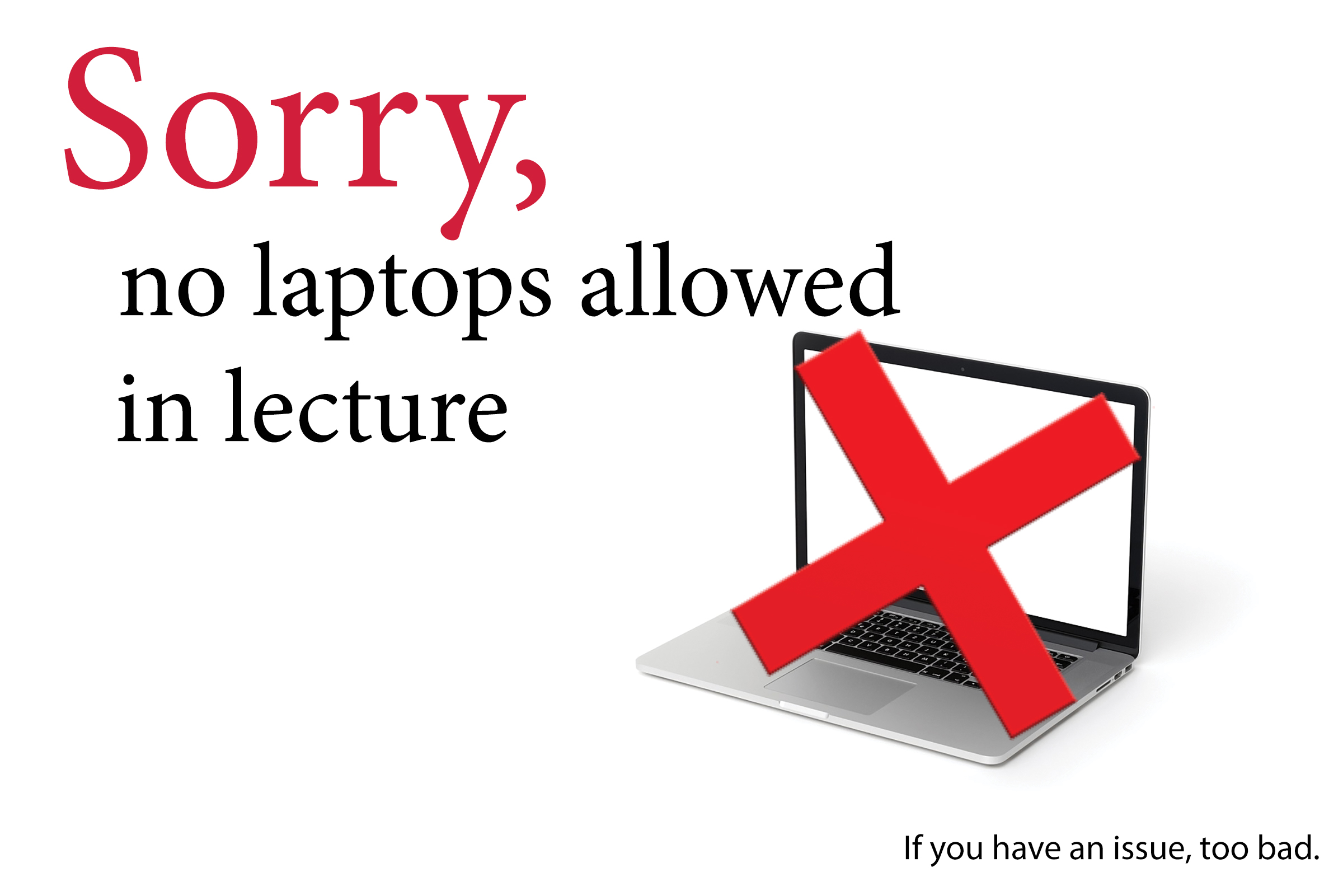Nicole Tilin | Contributor
Featured image: YFS is concerned computers will do more to hinder the student experience, than help it. | Basma Elbahnasawy
The York Federation of Students (YFS) represents over 53,000 students and is a leader in campus-wide campaigns, championing outstanding ability to lobby for movements that help empower students.
In their latest campaign to help students succeed academically, the YFS is urging course instructors to restrict students from using laptops in class.
Presy Denette, president of the YFS, says this is a crucial movement, as it “maintains the sanctity of the classroom, consent, the fact that students get distracted, and because we’ve seen cases at other universities, where laptops would get hacked, resulting in plagiarism.”
Although technology augments just about every field, the YFS takes a strong stance against technology—in particular, in the classroom. They believe that not only does technology strip students of the ability to do well, but it can also lead to a violation of academic integrity.
Some students do not have access to laptops, and the YFS claims it is inequitable for them to struggle, keeping up with students privileged enough to own a laptop.
Furthermore, students who bring laptops create a disruptive learning space for their peers through browsing Facebook, watching videos, and tending to other leisurely affairs.
One YFS member, who wished to remain anonymous, has a strong regard for this new campaign aimed at maintaining York’s more traditional framework.
“I’m not trying to say technology is ineffective, but we know electronics sometimes aren’t the most reliable,” the student says. “I feel like with a paper, pen, and the right mindset, that’s the easiest way you can go.”
Some students, on the other hand, are enraged York would be “regressing” instead of sticking to modern times.
Nora Zambonie, a second-year Economics major, claims this campaign prevents York from evolving with universities across Ontario and “aims to turn York into a more primitive, less representative, and less accessible way for students to earn their education.
“Having laptops in class is an effective method of taking notes for thousands of students across the globe,” Zambonie says.
“It has been proven to increase accessibility for students who have trouble reading their own handwriting and keeping up.
“It increases note-taking speed, engagement with online course material, and maximizes in-class participation.”
Zambonie says laptops are more secure than the traditional paper-and-pen method. Pages do not get lost, as data can always be backed up along with almost all other activities best done online, such as the handling of financial records, personal information, online ballot votes, and grades.
“Lastly, laptops are so much more eco-friendly!” she adds. “Think about all the paper we’re saving by keeping notes on our computers, rather than the hundreds of pages students waste yearly.”
Patrick Hassa, a fourth-year English major, is another student who stands firmly against this new campaign. “It makes no sense to prevent the use of technology in classrooms,” he says.
“Unlike the YFS’ claims to support this new movement, technology is, in fact, a more productive and efficient way to do things. It’s shocking that the YFS refuses to move forward. As a university, we need to continue evolving, and if laptops are banned in class, we are delaying progress—and that’s quite embarrassing.”
As an institution that runs democratically, students have an opportunity and right to fight for what they believe in. If students remain passive, a new policy preventing them from using laptops in class will take effect.
Any students opposed to the campaign are encouraged to get involved, to ensure the YFS remains relevant and reflects student interests.




